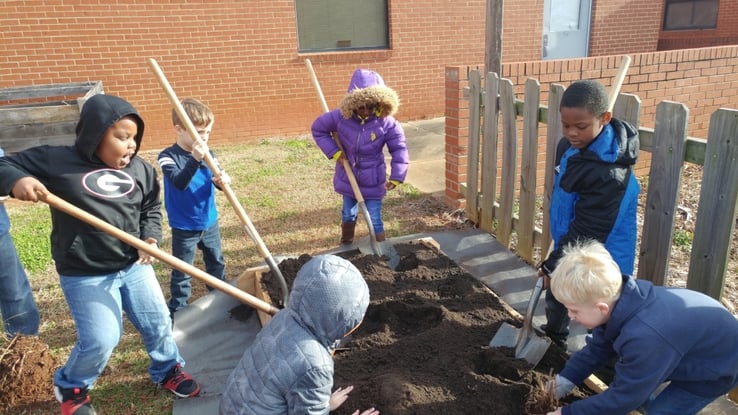
From kindergarten to senior year of high school, it would always happen. The first day of relatively warm spring weather, one chatty boy would raise his hand and ask the teacher, “Can we have class outside today?”
Inevitably, the teacher would say “no” because, believe it or not, wrangling students and making a lesson stick is difficult enough inside the classroom. However, the fateful days when we finally had the chance to venture outdoors were the most memorable ones. The promise of a hands-on activity in the outdoors made a lasting impression on me. I remember the days wandering the woods and identifying trees by their leaf shapes more than I recall the PowerPoints that taught me about the Golgi body inside an animal cell.
Though the last cold snap of winter is still to come, spring is on its way and students are itching to use their hands for something more than typing. One solution to this is an outdoor learning experience – the school garden.
1. Experiential Learning
Though our minds retain information in different manners, some students are hands-on learners who retain concepts better because they "learn by doing." Experiential learning takes this concept a step further by asking students to reflect on their experiences and be accountable for their work, an essential element of growing an edible garden.
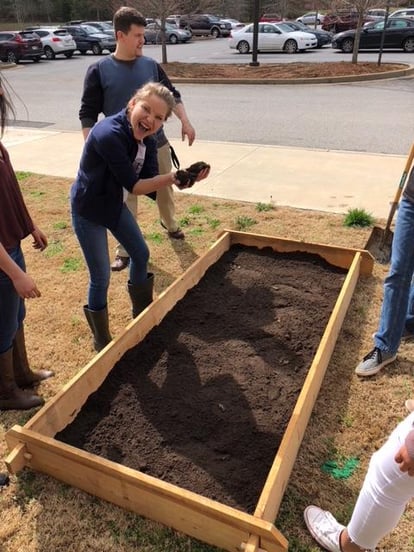
2. Fulfill Curriculum Requirements
Teachers are constantly asked to fulfill state and national standards in the teaching curriculum for each grade. Thankfully, there are multiple opportunities to incorporate gardening into elementary science curriculum, as well as in certain middle and high school classes.
Additionally, as students grow older and learn about the personal health, they have the opportunity to handle a few more of the heavy-lifting tasks in the garden. This proves to the students that they possess the skills to grow their own healthy food in a sustainable manner.
3. Encourage Community Involvement
Did you know there are Master Gardeners in every state? Master Gardeners are trained volunteer educators across the United States and Canada. These masters of horticulture love planting and helping others understand their passion for gardening. If you are struggling with vegetable growth knowledge, Master Gardeners are a better knowledge source than even our beloved Pinterest.
These folks will help teachers understand just what plants will work for your area, when you should plant them, and the best tools if you don’t already have them.
Use the map at this link to connect with your local Master Gardeners.
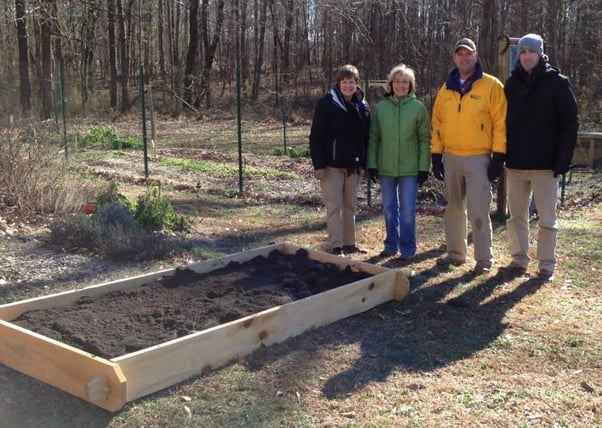
4. Spread Food Knowledge
In a world increasingly filled with screens and distractions, understanding the source of food isn't common. The average American is at least 3 generations removed from the farm at this point (according to American Farm Bureau). Field trip funding is low, and time is limited.
A school garden provides an opportunity for students to gain knowledge of where food comes from and an incentive for choosing the fruits (or vegetables) of their labor. All of this happens without leaving school property.
While time and money may be limited, there are several organizations who are willing to help. Food Corps is one of them we've worked with. Other programs provide grants for school gardens, will donate seeds, and even have lesson plans for educators who are new to teaching in the garden.
5. Easy Set-Up Options
Limited space doesn’t mean a lack of growth. Simply choose a spot that’s big enough to place a raised bed garden, make sure you can maneuver around it easily, and just add soil before adding your chosen plants. This is an easy and sustainable way to start your garden, learn what works, and plan for the future.
When planning, be sure to follow your school's funding and set-up guidelines and select the best plants. School Garden Wizard can help you with some resources. Then it's time to get creative! Pinterest is full of ideas for pizza gardens, recycled containers for planting, and decorations made by students for even more hands-on learning!
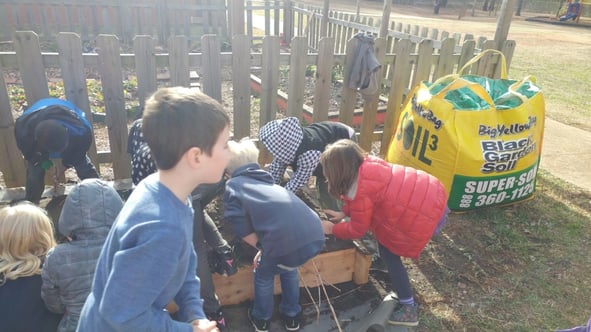
Find out more about raised bed vegetable gardens and take your delivery of a BigYellowBag of Soil3 organic compost during the month of March to take advantage of our Early Bird Special for a discount of $20 per cubic yard bag!

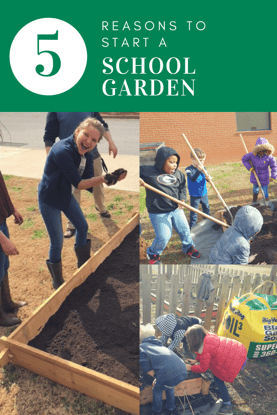
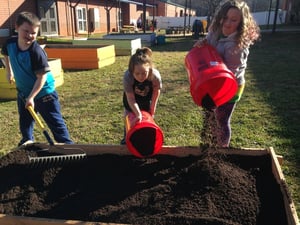
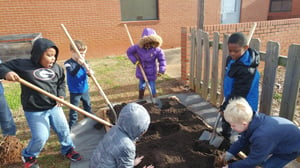

Did this help you out? Have any questions for clarity? Leave a comment below!